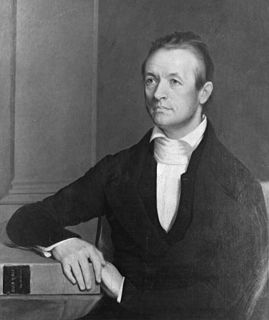A Quote by Adoniram Judson
Believe in the doctrine of perfect sanctification attainable in this life.
Quote Topics
Related Quotes
God works this unspeakable mystery of entire sanctification in your life and mine. People try to seek the experience of entire sanctification in ways other than God's way; but the wonderful Spirit of God will remove confusion and enable us to see that the only means to obtain the experience of entire sanctification by faith is the grace of God.
This, then, is the foundation of sanctification in Reformed theology. It is rooted, not in humanity and their achievement of holiness or sanctification, but in what God has done in Christ, and for us in union with him. Rather than view Christians first and foremost in the microcosmic context of their own progress, the Reformed doctrine first of all sets them in the macrocosm of God's activity in redemptive history. It is seeing oneself in this context that enables the individual Christian to grow in true holiness.
Justification and sanctification are both God's work, and while they can and must be distinguished, the Bible won't let us separate them. Both are gifts of our union with Christ, and within this double-blessing, justification is the root of sanctification and sanctification is the fruit of justification.
There is truth, my boy. But the doctrine you desire, absolute, perfect dogma that alone provides wisdom, does not exist. Nor should you long for a perfect doctrine, my friend. Rather, you should long for the perfection of yourself. The deity is within you, not in ideas and books. Truth is lived, not taught.
The usefulness of religion - the fact that it gives life meaning, that it makes people feel good - is not an argument for the truth of any religious doctrine. It's not an argument that it's reasonable to believe that Jesus really was born of a virgin or that the Bible is the perfect word of the creator of the universe.
When I think about sanctification, a couple things immediately pop into my head. One is how slow it actually is. I think everybody wants the silver-bullet, the thing that makes sanctification move like a superhighway rather than the dirt path that it is. The other is that, by in large, the greatest single asset in ongoing sanctification is a serious pursuit of joy in the face of Jesus Christ.
The inner change, justification, is effected at the moment of salvation. The outer change in the believer's daily walk, sanctification, continues throughout life. But the progressive work of sanctification is only fully effective when the radical, inner transformation of justification is realized and appropriated by faith.



































